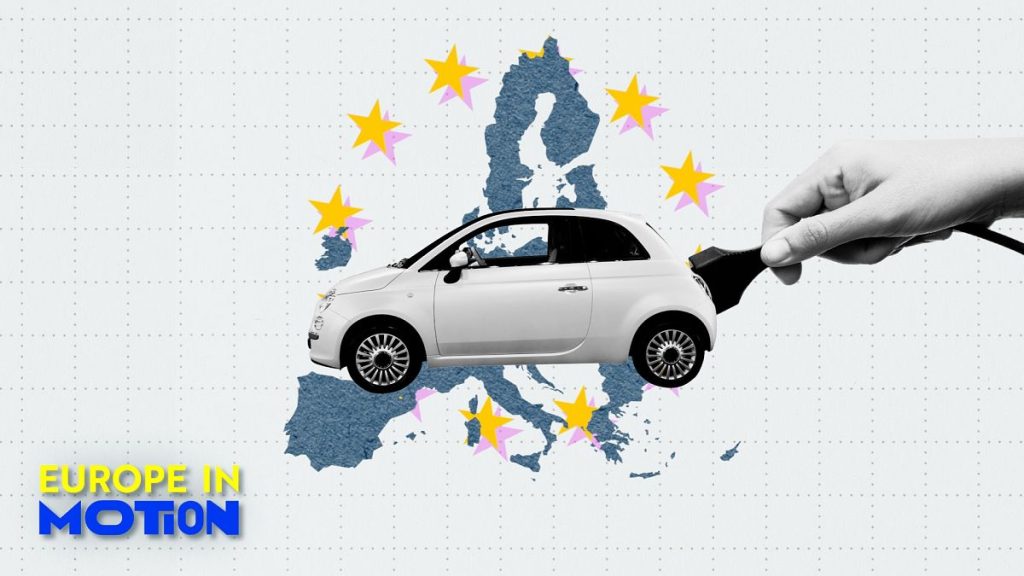The European automotive landscape is undergoing a significant transformation, with hybrid and electric vehicles (HEVs) rapidly gaining ground on traditional petrol and diesel cars. In 2023, HEVs constituted 48.3% of the 10.7 million new car registrations across the European Union, nearly matching the 48.8% share held by petrol and diesel vehicles combined. This signifies a dramatic shift in consumer preferences and reflects the growing awareness of environmental concerns and the push towards sustainable transportation solutions. While petrol cars still hold the largest individual share, their dominance is being challenged by the combined force of hybrid and electric alternatives, signaling a potential tipping point in the near future.
The surge in HEV adoption is primarily driven by the increasing popularity of both hybrid and fully electric models. Non-plug-in hybrid petrol-electric cars command a substantial 21.1% share of the market, showcasing their appeal as a transitional technology that offers improved fuel efficiency without the range anxiety associated with purely electric vehicles. Simultaneously, battery-only electric cars have witnessed an exponential growth trajectory, reaching a market share of 14.5% in 2023. This represents a remarkable increase from previous years, surpassing even diesel vehicles, which have historically held a significant position in the European market. The rapid advancement of battery technology, coupled with expanding charging infrastructure and government incentives, has propelled the adoption of electric vehicles, further accelerating the shift away from conventional combustion engines.
The growth of the electric car market is particularly striking when considering the long-term trends. The number of battery-only electric passenger cars in the EU soared to over 4.4 million in 2023, a staggering 88-fold increase compared to a decade ago and a 12-fold increase compared to just five years prior. This explosive growth underscores the rapid pace of innovation and adoption in the electric vehicle sector, driven by technological advancements, falling battery costs, and increasing consumer demand. Furthermore, stricter emission regulations and government policies promoting electric mobility have played a significant role in accelerating this transition.
Across the EU, the adoption of hybrid and electric vehicles varies significantly, highlighting the influence of national policies and consumer preferences. Nine EU member states have crossed the 50% threshold for HEV registrations, demonstrating a strong commitment to sustainable transportation in these countries. Leading the charge is Finland, where HEVs account for an impressive 78% of new car registrations, with a significant proportion attributed to both hybrid and fully electric models. Sweden and the Netherlands follow closely behind with 69% and 68% HEV market share, respectively, demonstrating a strong preference for electrified powertrains in these Northern European nations. These countries have implemented comprehensive policies to incentivize electric vehicle adoption, including tax breaks, subsidies, and investments in charging infrastructure.
In contrast, some EU countries lag significantly in the adoption of HEVs. Bulgaria registers the lowest share at a mere 7%, followed by Czechia at 20% and Croatia at 28%. These lower adoption rates can be attributed to various factors, including economic conditions, the availability of charging infrastructure, and the level of government support for electric mobility. Bridging this gap requires targeted policies and investments to encourage the adoption of HEVs in these countries, ensuring a more equitable transition towards sustainable transportation across the EU. The disparity in adoption rates across the EU underscores the need for tailored approaches that consider the specific circumstances of each member state.
The overall trend in the European automotive market clearly points towards a future dominated by electrified vehicles. While petrol cars maintain the largest individual share for now, their long-term dominance is under increasing threat. The rapid growth of hybrid and fully electric vehicles signifies a fundamental shift in the automotive landscape, driven by environmental concerns, technological advancements, and supportive government policies. The varying adoption rates across the EU highlight the need for customized strategies to accelerate the transition to sustainable transportation in all member states. As battery technology continues to improve, charging infrastructure expands, and government incentives remain in place, the market share of hybrid and electric vehicles is expected to continue its upward trajectory, ultimately reshaping the future of mobility in Europe.










